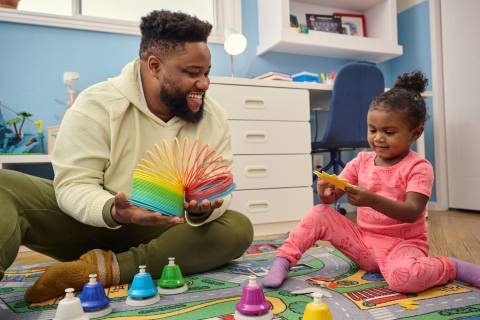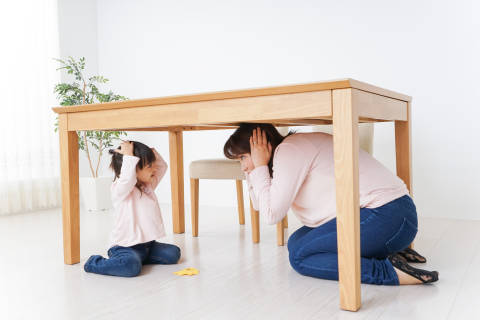For many caregivers, the journey of raising a child comes with a mix of excitement and uncertainty. It's natural to draw on our own childhood experiences as a foundation for our parenting approach. But what happens when our childhoods include very difficult experiences like overly harsh words, neglect, abuse, or other challenges?

By understanding how our past can influence our parenting today, we have the power to break these cycles and provide a stronger foundation for our own children.
Our childhoods impact many of our reactions. It’s important to reflect on moments when you might have reacted based on unresolved emotions or past experiences. This can look like shutting down when faced with a specific situation or overreacting to an event that wasn’t a big deal in hindsight. Recognizing these situations can help you find strategies to help regulate your emotions and work towards more open communication.
For example, imagine that when you were a child, your parents often raised their voice at you when you spilled something or made a mess. This created feelings of anxiety and fear whenever you made a mistake. Now, your child accidentally spills a glass of juice on the kitchen counter. Immediately, you’re flooded with feelings of anxiety and fear again. Without reflection, you might raise your voice at your child, who is already feeling upset about the accident, because that was your experience as a child.
From the white-hot heat of anger to the fluttery feelings of anxiety, our emotions can lead us to act in ways we don’t mean to. But when we take a few moments to identify what we’re feeling and acknowledge that it’s OK to feel that way, we can approach the situation in a way that reflects how we want to parent.
For example, imagine your child throws a fit in a public place, leaving you feeling embarrassed and upset.
Acknowledgment: Instead of trying to ignore or suppress your feelings of embarrassment and frustration, take a moment to recognize them. Try saying to yourself, “I am feeling embarrassed and stressed right now. It's OK to feel this way.”
Validation: Remind yourself that your emotional response is natural, and all caregivers experience challenging moments. You might say, “Every parent has felt this way at some point. It's a normal part of the parenting journey and doesn't mean I'm a bad parent.”
Caregiving is challenging! We all make mistakes and experience difficult moments that leave us questioning whether we’re good parents. In these moments, it’s important to practice self-compassion, which can help you maintain your emotional well-being, become more resilient, and provide a healthy example for your child to learn from.
For example, as a busy caregiver, you’ll likely encounter moments where you feel overwhelmed and lose patience with your children. When this happens, take a deep breath and practice self-compassion by acknowledging your feelings and understanding that you are human. Apologize to your children for yelling at them, explain your need for a brief moment to recharge, and consider a short family timeout for everyone to relax. By showing kindness and understanding towards yourself, you model healthy emotional regulation and self-compassion for your children, ultimately creating a more nurturing environment for the entire family.
In addition to understanding how our past can influence your parenting, we can also find new ways to parent that honor our needs and our children’s needs. We’ve provided some ideas below.
Creating stable, predictable routines and setting boundaries can provide a sense of security and trust for both you and your child. Healthy routines, such as regular family mealtimes or bedtime rituals, encourage communication and create opportunities for family members to bond, share, and support each other. Read more about creating routines with your baby or with your toddler or preschooler.
Learn about positive discipline strategies, active listening, and problem-solving. These methods help create a healthy parent-child relationship built on respect and understanding. Read our previous articles to learn more about positive parenting techniques for strong-willed children, using positive parenting to help children find calm in difficult moments, and incorporating positive discipline practices into your parenting style.
Do your best to create an environment where your child feels comfortable discussing their emotions and experiences. Some families like to set aside regular time for one-on-one chats with their child, providing a safe space for them to express their feelings and discuss concerns or experiences. Whenever you’re having an open conversation with your child, it’s important to give your child your full attention, ask open-ended questions, and validate their emotions by saying things like, “That must have been difficult,” or “I understand how you feel.”
Encourage resilience by teaching them to cope with life's challenges and to bounce back from setbacks. This can include teaching them how to name their emotions or practicing deep breathing when they’re feeling big emotions. Discover more ideas in our Parent Tip Finder.
Sometimes when we become caregivers, we realize that we want to provide a different upbringing for our children than we received. With some practice and self-compassion, you can overcome the impact of your own childhood experiences and create a stronger start for your child.






